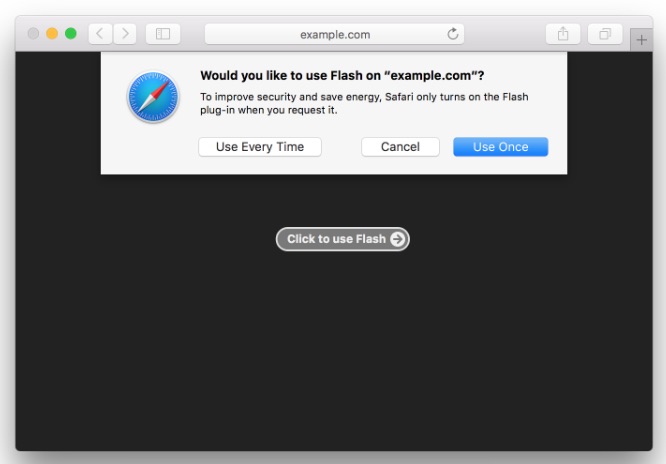Save 50% on a 3-month Digiday+ membership. Ends Dec 5.

Adobe Flash may have already had the last nail driven into its coffin. Now Apple is shoveling on the dirt: The computer giant is joining Google and Mozilla in dropping the beleaguered software.
In a blog post today, Apple said that upcoming versions of Safari, scheduled to ship this fall, will automatically disable the notoriously security flawed Flash in favor for the safer HTML5. Flash can still be used on a web page if it’s necessary by enabling it, as seen below.

Not only is HTML5 safer compared to Flash, but Apple explains that using it delivers “improved performance and battery life.” It’s a move perhaps long time coming since Apple was the leader in forbidding Flash by not allowing it to load on iOS for iPads and iPhones.
Apple’s moves shadows that of Amazon and Mozilla, which have denounced Flash. Google also made a similar move last month announcing when it announced its more popular browser Chrome will be blocking Flash for all but 10 websites by the end of the year.
More in Media

What publishers are wishing for this holiday season: End AI scraping and determine AI-powered audience value
Publishers want a fair, structured, regulated AI environment and they also want to define what the next decade of audience metrics looks like.

Digiday+ Research Subscription Index 2025: Subscription strategies from Bloomberg, The New York Times, Vox and others
Digiday’s third annual Subscription Index examines and measures publishers’ subscription strategies to identify common approaches and key tactics among Bloomberg, The New York Times, Vox and others.

From lawsuits to lobbying: How publishers are fighting AI
We may be closing out 2025, but publishers aren’t retreating from the battle of AI search — some are escalating it, and they expect the fight to stretch deep into 2026.
Ad position: web_bfu